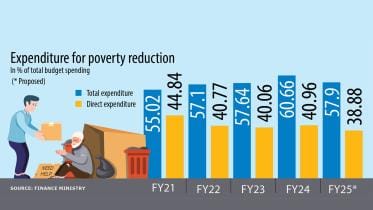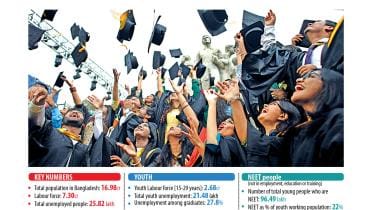BUDGET IN FOCUS
Budget Infocus: Direct spending on poverty reduction shrinks
The share of the total allocation for spending directly on poverty reduction has come down for the upcoming fiscal year despite persistently higher inflation, deepening the uncertainties of the poor.
26 June 2024, 18:00 PM
Startups neglected in proposed budget
The proposed budget for fiscal year 2024-25 offered no relief to startups and neglected their long-standing demands, in sharp contrast with the government’s vision for a Smart Bangladesh, where startups are key economic drivers.
25 June 2024, 18:00 PM
What’s missing for young people in the budget?
Bangladesh’s high youth unemployment rate necessitates specific remedial steps, including ways for employment generation and adoption of prerequisite education and training, which the proposed national budget for fiscal year 2024-25 did not include, according to analysts.
24 June 2024, 18:00 PM
What’s in the budget to boost private investment?
The government’s target in the proposed budget for 2024-25 on increasing private sector investment is ambitious and will be difficult to achieve, said businesspeople and experts citing high bank interest rates and a shortage of US dollars.
23 June 2024, 18:00 PM


